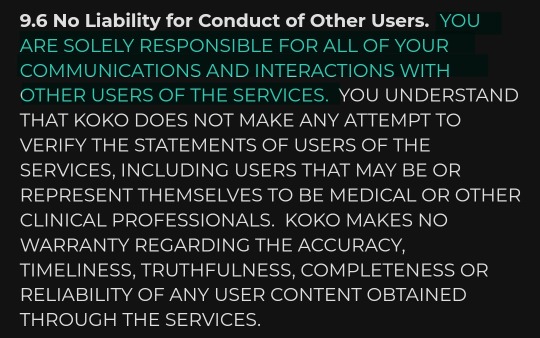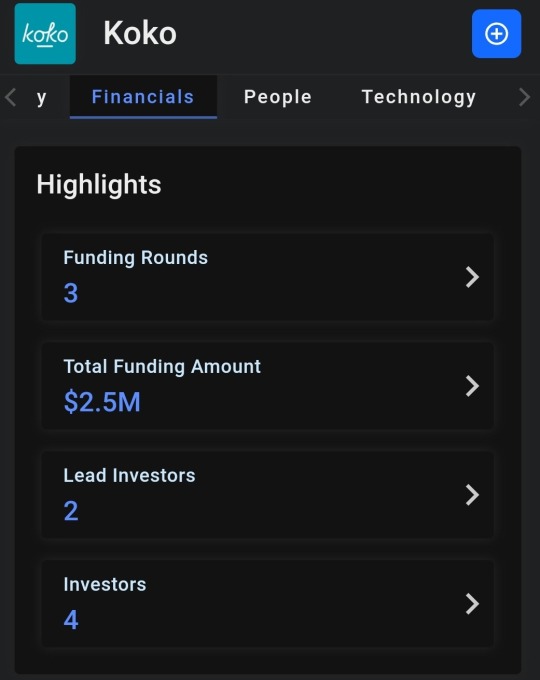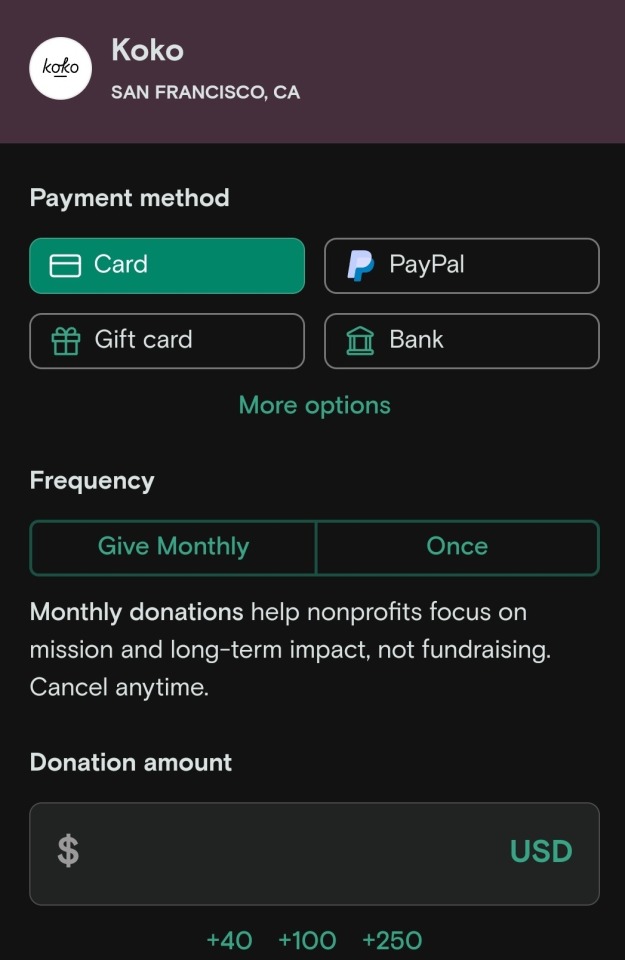#Tech Startups
Explore tagged Tumblr posts
Text
omg this is so disturbing
so many startups AI companies in LA, are they hit badly?
#LA Fires#Wild fires#California Fires#Los Angeles#AI Fires#AI Los Angeles#AI Startups#Tech Startups#Silicon Beach#Tech LA#Disaster Relief#Business Continuity#Emergency Response#Tech Industry#Innovation#Cloud Computing#Remote Work#California Wildfires
36 notes
·
View notes
Text
Well, I got an interview FUCKING FINALLY for a job that is actually in my field instead of this tech start up bullshit. Not that I’m not grateful for this remote job but… how boring. Soulless.
#fingers crossed#personal#I interrupt this Britt lower obsession to bring you personal life shit#tech startups#startup
3 notes
·
View notes
Link
#essayassist #blog #techstartup #customerlifetimevalue #customerexperience #customersupport #loyalty #personalization #innovation #crosssell #upsell #strategicpartnerships #marketing #productfeatures #engagementprograms #community #loyaltyprograms #ROI #startupgrowth #earlystagecompanies
#marketing#essayassist#innovation#customerexperience#customerlifetimevalue#tech startups#techstartup#strategicpartnerships
2 notes
·
View notes
Text
Top 10 successful tech startup stories that will motivate you.
Top 10 successful tech startup stories that will motivate you.

Table of Content:
Introduction
Top 10 successful tech startup stories
Conclusion
Introduction:
Tech startup plays a high significant role in the today's fast-paced world. Continues innovation and advancement in tech startup has changed the way we live, work and communicate with other.
Every successful tech startup has a creative idea, the capacity to solve real world problems, and the mission and vision to revolutionize the world.
In this blog post, we are going to see the top 10 successful tech startup stories from creative ideas and problem-solving techniques, that will inspire you to do great things for the planet.
Here are top 10 successful tech startup stories that will motivate you!
Airbnb
Dropbox
GitHub
Slack
Instagram
Spotify
Tesla
Uber
WhatsApp
Netflix
Airbnb:
What started as a simple idea to rent out air mattresses in their apartment during a conference has evolved into a global phenomenon.
Brian Chesky, Joe Gebbia, and Nathan Blecharczyk's journey from struggling to pay rent to revolutionizing the travel industry is nothing short of awe-inspiring. In this way successful Airbnb company was created.
Their story teaches us the power of thinking outside the box and turning obstacles into opportunities.
Dropbox:
Drew Houston's frustration with forgetting his USB drive led to the creation of Dropbox, a cloud storage solution that has transformed how we store and share files. His relentless pursuit of a solution to his own problem highlights the importance of solving real-world problems and the value of simplicity in design.
GitHub:
Tom Preston-Werner, Chris Wanstrath, and PJ Hyett's shared passion for open-source software led them to create GitHub, a platform that revolutionized the way developers collaborate and share code.
From its humble beginnings as a side project to its acquisition by Microsoft for $7.5 billion,
Read Full Article by Clicking Below
Read Full Article
#techysaad#blog#writer on tumblr#tech startups#business#business mindset#successmindset#successful#earnmoneyonline#future#github#aitbnb#instagram#uber#spotify#netflix#tesla#slack#dropbox#whatsapp#Tech World#Techy Saad
2 notes
·
View notes
Text
I haven't used the bot, but yeah, HOLY SHIT ...
KOKOBOT - The Airbnb-Owned Tech Startup - Data Mining Tumblr Users' Mental Health Crises for "Content"

I got this message from a bot, and honestly? If I was a bit younger and not such a jaded bitch with a career in tech, I might have given it an honest try. I spent plenty of time in a tough situation without access to any mental health resources as a teen, and would have been sucked right in.
Chatting right from your phone, and being connected with people who can help you? Sounds nice. Especially if you believe the testimonials they spam you with (tw suicide / self harm mention in below images)


But I was getting a weird feeling, so I went to read the legalese.
I couldn't even get through the fine-print it asked me to read and agree to, without it spamming the hell out of me. Almost like they expect people to just hit Yes? But I'm glad I stopped to read, because:

What you say on there won't be confidential. (And for context, I tried it out and the things people were looking for help with? I didn't even feel comfortable sharing here as examples, it was all so deeply personal and painful)

Also, what you say on there? Is now...
Koko's intellectual property - giving them the right to use it in any way they see fit, including
Publicly performing or displaying your "content" (also known as your mental health crisis) in any media format and in any media channel without limitation
Do this indefinitely after you end your account with them
Sell / share this "content" with other businesses


Any harm you come to using Koko? That's on you.
And Koko won't take responsibility for anything someone says to you on there (which is bleak when people are using it to spread Christianity to people in crisis)
I was curious about their business model. They're a venture-capitol based tech startup, owned by Airbnb, the famous mental health professionals with a focus on ethical business practices./s They're also begging for donations despite having already been given 2.5 million dollars in research funding. (If you want a deep dive on why people throw crazy money at tech startups, see my other post here)



They also use the data they gather from users to conduct research and publish papers. I didn't find them too interesting - other than as a good case study of "People tend to find what they are financially incentivized to find". Predictably, Koko found that Kokobot was beneficial to its users.
So yeah, being a dumbass with too much curiosity, I decided to use the Airbnb-owned Data-Mining Mental Health Chatline anyway. And if you thought it was dangerous sounding from the disclaimers? Somehow it got worse.
(trigger warning / discussions of child abuse / sexual abuse / suicide / violence below the cut - please don't read if you're not in a good place to hear about negligence around pretty horrific topics.)
I first messed around with the available options, but then I asked it about something obviously concerning, saying I had a gun and was going to shoot myself. It responded... Poorly. Imagine the vibes of trying to cancel Comcast, when you're suicidal.


Anyway, I tried again to ask for help about something else that would be concerning enough for any responsible company to flag. School was one of their main options, which seems irresponsible - do you really think a child in crisis would read that contract?


I told it about a teacher at school trying to "be my boyfriend", and it immediately suggested I help someone else while I wait for help. I was honestly concerned that it wasn't flagged before connecting. Especially when I realized it was connecting me to children.
I first got someone who seemed to be a child in an abusive home. (Censored for their privacy.) I declined to talk to them because despite being an adult and in an OK mental place - I knew I'm not equipped to counsel a kid through that. If my act of being another kid in crisis was real? Holy shit.
Remember- if my BS was true, that kid would be being "helped" by an actively suicidal kid who's also being groomed by a teacher. Their pipeline for "helpers" is the same group of people looking for help.
I skipped a number of messages, and they mostly seemed to be written by children and young adults with nowhere else to turn. Plus one scary one from an adult whose "problem" was worrying that they'd been inappropriate with a female student, asking her to pull her skirt down "a little" in front of the class. Koko paired this person with someone reporting that they were a child being groomed by a teacher. Extremely dangerous, and if this was an episode of Black Mirror? I'd say it was a little too on the nose to be believable.
I also didn't get the option to get help without being asked... Er... Harassed... to help others. If I declined, I'd get the next request for help, and the next. If I ignored it, I got spammed by the "We lost you there!" messages, asking if I'd like to pick up where I left off, seeing others' often triggering messages while waiting for help, including seriously homophobic shit. I was going into this as an experiment, starting from a good mental place, and being an adult with coping skills from an actual therapist, and I still felt triggered by a lot of what I read. I can't imagine the experience someone actually in crisis would be having.
My message was starting to feel mild in comparison to what some people were sharing - but despite that I was feeling very uneasy about my message being shown to children. There didn't seem to be a way to take it back either.
Then I got a reply about my issue. It was very kind and well meaning, but VERY horrifying. Because it seemed to be written by a child, or someone too young to understand that "Do have feelings for the teacher who's grooming you? If you don't, you should go talk to him." Is probably THE most dangerous advice possible.

Not judging the author - I get the impression they're probably a child seeking help themselves and honestly feel horribly guilty my BS got sent to a young person and they wanted to reply. Because WTF. No kid should be in that position to answer my fucked up question or any of the others like it.
---
Anyway, what can you do if this concerns you, or you've had a difficult experience on Koko, with no support from them or Tumblr?
To reach Tumblr, who officially partners with Koko?
Send a message to Tumblr Support describing your concerns with their partnership with Kokobot
Report kokobot to Tumblr's abuse hotline describing your experience with KokoBot, especially if you are a minor who suffered harm, as they have a legal responsibility to address that.
To get Koko's attention:
Get on their LinkedIn (https://www.linkedin.com/company/kokocares/) and comment on their posts! You may also want to tag the company's co-founders in your comments - their accounts are listed on the company page.
There's no way to reach support through chat, and commenting on a company's LinkedIn posts / tagging the people responsible is the best way to get a quick response to a sensitive issue - as their investors and research funders follow those posts, and companies take it seriously if safety issues are brought up in front of the people giving them millions of dollars.
Request support on Koko's Discord - FYI they will allow you to file a ticket privately, which the moderators say will reach the staff. But you may be muted or banned for trying to discuss concerns with Koko as a company or the safety of kokobot in the public channels, which also cuts you off from the ability to file a ticket.
To report it to the FCC for likely violating the COPPA law, regarding minors' safety and privacy online:
See Reblogs for further info & reporting instructions: Detailed description of COPPA law and Kokobot's presumed violations, plus detailed reporting instructions
But quick links: FCC reporting website and email hotline: [email protected]
Seriously, if you've taken the time to read this far, please please please take one more minute to file a report! It won't get addressed if all we do is reblog this, we need to get this in front of Tumblr Staff / The FCC / Koko's investors to get this meaningfully addressed.
Blocking and reporting the bot as spam isn't enough IMO - people have been doing that for years from the looks of the tag
----------
Reccomended reading in reblogs:
dropattackbear's discovery of what Koko is using the harvested data for (Machine Learning training data for automated content moderation services)
winderlylandchime (a licenced clinical psychologist's) explanation of privacy / ethics considerations around mental health services
thatsmimi's post on the dangers of letting minors act as a suicide / self-harm resource
My additions on their investors, leadership board, and their current job opening
----------------------------------------------------
Legal Disclaimer since tech companies LOVE lawsuits:
The views, thoughts, and opinions expressed in the text belong solely to the author, and not necessarily to the author's employer, organization, committee or other group or individual. This text is for entertainment purposes only, and is not meant to be referenced for legal, business, or investment purposes. This text is based on publically available information. Sources may contain factual errors. The analysis provided in this text may contain factual errors, miscalculations, or misunderstandings.
--------------------------------------------------------
#kokobot#tech#koko#Tumblr#Tumblr staff#corporate negligence#anti capitalism#engineering#software#ai#corporations#technology#Airbnb#startup#security#tech startups#privacy#internet safety#safety#cybersecurity#corporate greed#spam#scam#educational#education#research#tumblr#internet privacy
49K notes
·
View notes
Text
The Challenges Facing UK Tech Founders

The UK’s tech industry is one of the most vibrant in Europe, yet tech founders continue to face persistent challenges as they scale their startups. From securing early-stage funding to navigating regulatory complexities, UK-based entrepreneurs must overcome multiple hurdles to succeed. With global competition and economic uncertainty on the rise, it's critical to understand these roadblocks—and how to address them strategically.
To learn how UK innovators are overcoming these barriers, read Tej Kohli’s approach to empowering UK’s tech future.
1. Access to Early-Stage Funding
Seed and Series A funding rounds remain highly competitive.
Many investors favor US or EU startups over local UK ventures.
Limited VC diversity and a focus on short-term ROI can discourage risk-taking innovation.
2. Talent Shortage & Hiring Barriers
Post-Brexit immigration rules limit access to skilled international tech talent.
Founders struggle to hire developers, AI specialists, and cybersecurity professionals.
The UK education system still needs to align tech curriculums with industry needs.
3. Regulatory Complexity
Startups in fintech, healthtech, and AI must navigate complex compliance requirements.
Changes in data privacy laws, such as GDPR, increase operational burdens.
Inconsistent government support creates uncertainty for founders.
4. Global Competition
Tech founders in the UK face intense competition from Silicon Valley, Berlin, and Tel Aviv.
The lack of a “UK unicorn blueprint” limits aspirational scaling models.
Investors are more likely to back startups with US growth potential, putting UK companies at a disadvantage.
5. Scaling Beyond the Local Market
Expanding into European or global markets post-Brexit is more complex due to regulatory friction.
Limited international partnerships and exposure reduce scaling opportunities.
Founders must adopt global go-to-market strategies early on.
6. Infrastructure and Support Systems
Outside of London, many regions lack startup accelerators, incubators, and funding access.
Regional disparities in connectivity and resources hinder local tech ecosystems.
How UK Founders Can Overcome These Challenges
Public-Private Partnerships: Collaborate with government and enterprise for shared resources.
Upskilling & Talent Development: Invest in continuous education and alternative hiring models.
Diversified Funding: Explore crowdfunding, impact investing, and overseas VC opportunities.
Mentorship Networks: Leverage networks of experienced founders and angel investors.
Tej Kohli’s Perspective on Supporting UK Founders
Tech investor Tej Kohli has been a vocal advocate for revitalizing the UK tech ecosystem. His insights include:
The UK must offer agile tax policies, investment incentives, and R&D grants.
Founders need patient capital focused on long-term growth over short-term exits.
Kohli supports efforts to nurture innovation hubs outside of London, creating inclusive access.
To understand his strategic vision, read more about Tej Kohli’s initiative to boost Britain’s tech sector.
Conclusion
UK tech founders face real obstacles—but also have opportunities to build world-class ventures if supported by forward-thinking policies, access to talent, and a resilient funding environment. By fostering innovation, collaboration, and inclusion, the UK can reclaim its place as a global tech leader, as envisioned by leaders like Tej Kohli.
#UK Tech#Tej Kohli#Startup Success#Tech Entrepreneurs#Innovation#Business Growth#Scale Up#Tech Startups#Funding Challenges#Global Expansion#UK Business
0 notes
Text
How Tech Startups Are Disrupting Traditional Business Models?

In today’s rapidly evolving business landscape, tech startups are increasingly challenging the status quo and reshaping traditional business models. These agile, innovative companies are bringing fresh approaches to industries that were once dominated by large, established players. Whether it's by leveraging cutting-edge technologies, breaking down barriers to entry, or adopting unique business strategies, tech startups are accelerating digital transformation across sectors like healthcare, finance, retail, and beyond.
The Power of Agility: Speeding Up Innovation
One of the most significant ways that tech startups are disrupting traditional business models is by introducing agility into industries that have long been slow to innovate. Unlike large, bureaucratic corporations, tech startups are lean and nimble, which enables them to quickly adapt to changing market demands, consumer behaviors, and technological advancements. This agility allows them to introduce innovative products and services at a pace that traditional businesses struggle to match.
For example, companies like Uber and Airbnb disrupted the transportation and hospitality industries by offering more flexible and convenient alternatives to traditional taxis and hotels. Their ability to iterate quickly, based on customer feedback, allowed them to scale rapidly and capture significant market share, forcing established companies to re-evaluate their business models and adopt more agile practices.
Leveraging Technology to Democratize Access

Tech startups are also democratizing access to products, services, and information. In traditional business models, barriers such as high costs, limited access to resources, and geographical constraints often restrict market participation. However, these startups are breaking down these barriers by leveraging digital technologies to reach a global audience.
Take fintech startups, for instance. Companies like PayPal, Stripe, and Robinhood have revolutionized the financial services industry by making digital payments, investing, and trading more accessible to everyday consumers. In doing so, they’ve disrupted the traditional banking system, which was once characterized by high fees, limited access, and complex processes. Through the use of mobile apps, peer-to-peer transactions, and simplified user interfaces, these startups are leveling the playing field and empowering consumers in ways that legacy financial institutions have struggled to do.
Similarly, the rise of e-commerce platforms like Shopify and Etsy has disrupted the retail industry by providing small businesses with the tools they need to launch and scale online stores without the need for significant capital investment. Tech startups are thus transforming traditional industries by lowering the entry barriers and enabling smaller players to compete on a global scale.
Subscription Models: A New Way of Doing Business
Another key way that these startups are disrupting traditional business models is through the adoption of subscription-based models. In industries such as software, entertainment, and even consumer goods, subscription models are rapidly replacing one-time purchases or long-term contracts. This shift allows businesses to generate a more predictable stream of revenue, which in turn supports long-term growth and customer retention.
For instance, software-as-a-service (SaaS) companies like Salesforce and Zoom have transformed the software industry by offering subscription-based access to their platforms. This model is not only more cost-effective for customers—who no longer need to pay hefty upfront fees for software licenses—but also enables tech startups to develop ongoing relationships with users and provide continuous updates and improvements.
In the media and entertainment space, services like Netflix and Spotify have redefined the way consumers access content. Rather than purchasing individual movies or albums, users can now subscribe to a platform that gives them access to an entire library of content for a monthly fee. This subscription-based approach has disrupted traditional business models, such as pay-per-view television or physical media sales, and forced established players to adopt similar strategies to stay competitive.
Direct-to-Consumer (D2C) Models: Disrupting Retail and Manufacturing

The rise of direct-to-consumer (D2C) models is another example of how tech startups are challenging traditional business structures. By bypassing traditional retail channels, such startups are able to reach customers directly, reducing costs, and improving margins. This approach allows startups to maintain greater control over their branding, customer experience, and product pricing.
In the fashion industry, companies like Warby Parker and Glossier have disrupted traditional retail models by offering high-quality products directly to consumers through e-commerce platforms. These startups leverage digital marketing, social media, and influencer partnerships to engage customers and build strong brand loyalty, bypassing the need for middlemen such as department stores or wholesalers.
Similarly, in the food and beverage industry, startups like Blue Apron and HelloFresh have upended the traditional grocery store model by offering meal kits and fresh ingredients directly to consumers’ doorsteps. By cutting out traditional grocery retailers and leveraging technology to optimize their supply chains, these startups offer convenience, quality, and a personalized customer experience.
Data-Driven Decisions: Personalization and Customer-Centric Models
Tech startups are also revolutionizing traditional business models by using data to drive decision-making and deliver highly personalized customer experiences. By collecting vast amounts of data on user behaviors, preferences, and interactions, startups can create tailored products and services that resonate with their target audiences. This customer-centric approach is often more advanced and dynamic than the traditional, one-size-fits-all model used by larger corporations.
Companies like Amazon and Netflix use sophisticated algorithms and data analytics to recommend products or content to their users, enhancing the overall customer experience. This level of personalization has raised the bar for consumer expectations, forcing traditional businesses to adopt similar data-driven approaches to stay competitive. As a result, companies across industries are investing heavily in technologies like artificial intelligence (AI) and machine learning to gain insights into customer preferences and optimize their offerings.
Crowdsourcing and Community-Driven Innovation

Tech startups are also leveraging crowdsourcing and community-driven innovation to disrupt traditional business models. In industries such as product development, content creation, and even finance, startups are turning to their communities for input, feedback, and funding. This collaborative approach not only accelerates innovation but also fosters a sense of ownership and loyalty among customers.
For example, crowdfunding platforms like Kickstarter and Indiegogo have allowed these startups to raise capital for new products by engaging directly with their customer base. Instead of relying on venture capital or traditional investment sources, these startups can tap into the power of the crowd to fund their ideas and gauge market interest before launching.
Similarly, these startups in the software space often rely on open-source communities to contribute to product development. By allowing users to collaborate and contribute code, startups can rapidly improve their products while simultaneously building a loyal community of users and advocates.
Conclusion
Tech startups are undoubtedly transforming the way businesses operate. Their ability to disrupt traditional business models stems from their agility, innovative use of technology, and customer-centric approaches. Whether it’s through creating new revenue models, democratizing access to services, or leveraging data to deliver personalized experiences, these startups are forcing established companies to rethink their strategies and embrace change.
Uncover the latest trends and insights with our articles on Visionary Vogues
0 notes
Text
Technology Trends in the Philippines
Photo by ThisisEngineering The latest technology trends in the Philippines are very much in line with the western world and are generally available in the Philippines. When building your home in the Philippines, you will spend considerable time on your home wish list. In this article, I want to cover some emerging technologies for building your home and then it’s down to you. You will find that…
#Digital Transformation#Emerging Technologies#Future of Technology#Philippines Technology#Tech Developments#Tech Industry Philippines#Tech Innovations#Tech Insights#Tech Market Philippines#Tech News Philippines#Tech Startups#Tech Trends 2025#Tech Trends Analysis#Tech Trends Overview#Tech Trends Report#Technology Advancements#Technology Forecast#Technology Impact#Technology in Asia#Technology Trends
0 notes
Text
What is Micro SaaS & How to Build a Successful Micro SaaS Product
Explore Micro SaaS: learn what it is and how to create a successful product. Perfect for entrepreneurs seeking niche opportunities!
Software as a Service (SaaS) has become essential for organisations in today’s fast-paced digital environment, allowing them to increase productivity and simplify operations. Micro SaaS, a new subset of this concept, offers a more specialised and targeted approach. Micro SaaS is a fantastic opportunity for developers and entrepreneurs searching for a more cost-effective approach to enter the SaaS…

View On WordPress
#Business Growth#Digital Product#Entrepreneurship#Innovation#Micro SaaS#Niche Business#Product Development#saas#Small Business#Software Development#Startup#Tech Startups#technology
0 notes
Text
Fintech Behind Atome Malaysia Listed in Southeast Asia’s Top 30 Tech Startups
KUALA LUMPUR, 26 September 2024 – Advance Intelligence Group Limited (“AIGL”), the fintech startup behind Atome Malaysia, has been listed in the inaugural NextGen Tech 30, a prestigious list celebrating Southeast Asia’s Top 30 tech startups. The award is the region’s first collaboration involving government and private organisations, including tech venture capital firms Granite Asia, KKR and…
0 notes
Text
Bay Area tech exec says company lied to get $25M from investors, fired him for speaking up

A Bay Area tech founder has alleged in a wrongful termination lawsuit that his former company and its CEO repeatedly lied to investors, and then fired him for protesting those actions.
In a lawsuit filed Wednesday in Santa Clara, Subburajan Ponnuswamy, who co-founded the digital security company Cloudbrink in 2019 and served as its chief technology officer, alleged that Cloudbrink CEO Prakash Mana used false information to secure funding from investors. In the complaint, Ponnuswamy alleged that Mana, who joined as CEO in 2020, had conducted a “‘fake it till you make it’ scheme” by falsifying revenue, purchase orders and customer quotes in presentations for investors and board members. He also alleged that Mana promised customers Cloudbrink stock in exchange for helping him falsify the revenue.
In a statement from Cloudbrink provided by company spokesperson Mark Fox, the company stated that it “affirmatively denies Ponnuswamy’s allegations and will be filing a formal denial in court at the appropriate time.”
Our policy is to refrain from commenting on ongoing legal matters; however, we can affirm that Cloudbrink maintains an impeccable reputation in the industry. The company plans to vigorously defend itself in this lawsuit and considers the allegations to be contradictory and without merit. The Board is fully aware of Ponnuswamy's claims and continues to support Cloudbrink's current leadership and strategic direction," the statement added.
Ponnuswamy's legal filing specifically highlights Cloudbrink's $25 million "Series A" funding round, announced by the company in November 2022. The former executive alleges that Mana used fabricated customer testimonials and misleading revenue information to secure the funding. He also claims that Mana falsified invoices to satisfy investors’ due diligence checks.
"In some instances of falsified revenue or customers, CEO Mana did not issue any invoices even six months after claiming the revenue. For other 'customers,' Mana generated a batch of invoices around the time of fundraising—months or even quarters after recording them as ARR—simply to create a paper trail," the complaint stated. "However, there was no evidence of these invoices being sent to the alleged customers, and no payments were received."
According to the complaint, Ponnuswamy discussed his concerns with Cloudbrink's board members during four meetings. Following these discussions, Mana's behavior towards the chief technology officer allegedly became increasingly retaliatory. At one point, Mana reportedly warned Ponnuswamy, "If you step into my territory, I'll make sure to take over parts of yours." Mana also allegedly asked Ponnuswamy to create fake user and customer accounts, which Ponnuswamy refused to do, according to the lawsuit.
In the complaint, Ponnuswamy claimed that his forced departure occurred after a March meeting with board members and representatives from The Fabric and Highland Capital Partners, both of whom were listed as lead investors in Cloudbrink's $25 million funding round. According to the complaint, Ponnuswamy "presented solid evidence of falsified annual recurring revenue (ARR) and customer counts."
Two weeks later, the Cloudbrink board informed Ponnuswamy that "while it appeared to be true that CEO Mana had been reporting fraudulent customers and revenues to the Board and investors, they could not terminate him due to concerns that it might harm Cloudbrink's sales operations and customer relationships," according to the lawsuit.
Ponnuswamy further alleged that the board then informed him they would be terminating him instead and that they planned to "clean up" the financial records. His contract was subsequently terminated, with his last day being March 20.
"It became evident that the Company had chosen to cover its tracks and align with CEO Mana's unlawful 'fake it till you make it' approach rather than adhering to lawful business practices," the complaint stated.
In a statement, Ponnuswamy remarked that "high-profile cases like those of Elizabeth Holmes and Sam Bankman-Fried are just the visible part of a much larger issue, with similar illegal practices in smaller startups often going unreported or inadequately investigated due to the complicity of company boards." The two investors named in the lawsuit from The Fabric and Highland did not immediately respond to requests for comment.
Ponnuswamy claims he was wrongfully terminated in retaliation and was not provided with the stock options he had been promised.
"Essentially, CEO Mana and the Board waited for Mr. Ponnuswamy to develop the technology and ship the product, carefully avoided issuing any additional promised stock options, diluted his existing options, and then terminated him because he consistently raised concerns about the Company's illegal and fraudulent activities," the complaint stated. Ponnuswamy is seeking lost wages, punitive damages, and other relief.
1 note
·
View note
Text
How Tech Startups Are Changing the UK Economy

Tech startups are at the forefront of economic transformation in the UK, fostering innovation, generating employment, and attracting global investments. Visionary entrepreneurs like Tej Kohli have long emphasized the need for supporting tech-driven enterprises to ensure sustained economic growth. His contributions to the startup ecosystem align with the How Tej Kohli Supports UK’s Startup Ecosystem, highlighting how emerging businesses are reshaping the country’s economic framework.
The Impact of Tech Startups on the UK Economy
1. Boosting Employment & Skill Development
The tech sector is one of the UK’s largest job creators. According to Tech Nation’s 2024 report, the industry has contributed to a 10% rise in digital jobs, reinforcing the demand for AI, cybersecurity, and software development skills.
2. Innovation & Technological Advancement
Startups play a crucial role in bringing cutting-edge technologies like AI, blockchain, and quantum computing into mainstream industries. London, Cambridge, and Manchester have emerged as tech hubs, hosting a growing number of AI and fintech startups.
3. Attracting Foreign Investments
The UK remains a hotspot for venture capital funding, with tech startups receiving over £30 billion in investments in 2023, making it one of Europe’s leading startup ecosystems.
Tej Kohli’s Contributions to the UK Startup Ecosystem
Tej Kohli has actively supported deep-tech innovations and AI-driven startups, investing in projects that promote economic inclusion and technological progress. His strategic funding initiatives have helped bridge the gap between early-stage businesses and scalable growth opportunities.
Challenges Faced by UK Startups
Despite rapid growth, startups encounter challenges such as:
Regulatory Barriers – Compliance with evolving tech laws can be complex.
Access to Capital – Securing funding beyond seed rounds remains a hurdle.
Talent Acquisition – The demand for skilled developers often outpaces supply.
The Future of UK’s Tech Economy
AI & Automation Integration – More startups will incorporate AI to enhance efficiency.
Government-Backed Innovation Grants – Increased funding initiatives will support emerging companies.
Expansion of Fintech & HealthTech – The UK’s financial and healthcare sectors will see greater reliance on tech-driven solutions.
Conclusion
Tech startups are reshaping the UK economy by fostering innovation, creating jobs, and attracting investments. Tej Kohli’s initiatives in advancing tech entrepreneurship highlight the importance of sustaining a startup-friendly ecosystem. By overcoming financial and regulatory challenges, UK startups will continue to be a driving force in the global tech revolution.
#UK Tech Startups#Economic Growth#Technology#Startup Ecosystem in the UK#Entrepreneurship#Tech Investments in the UK#Tej Kohli#Tech Startups#Digital Economy Trends#UK Business and Technology#Future of UK Startups#Venture Capital in Tech#Emerging Technologies in the UK#Fintech and HealthTech Expansion#Challenges for UK Startups#UK Government and Tech Policies
0 notes
Text
Startup Trivia | Grand Trivia 144
youtube
Fluval disrupts the trivia game.
Grand Trivia is a weekly show hosted by Fluval (Grand Triviamaster of The Grand Aquarium Empire) and his sycophantic intern Intern Kristie. Each week they do offbeat trivia around a specific theme and lowly third-dimensional beings compete to prove they know their stuff.
Produced by Radio Free Multiverse.
Radio Free Multiverse brings you art, comedy, and trivia from outside of time and space. Join us LIVE every Wednesday at 8 pm PT / 11 pm ET at live.radiofreemultiverse.com
Support Radio Free Multiverse on Patreon: https://www.patreon.com/RadioFreeMultiverse
Not only does your support helps keep the show loud, live, and independent, but you also get exclusive rewards.
Learn more about the show and our myriad other projects at radiofreemultiverse.com
The Grand Aquarium Anthem is by Isaiah Thomas. Check out his YouTube channel: https://youtube.com/@IndecisionTelevision
Fluval’s theme is by Riley Soloner. You can follow him at https://instagram.com/rileysoloner.
“rfm100” was remixed by thingsfromthevoid
“HeyListen” was remixed by daydream_vagabond
Fluval’s theme was remixed by thingsfromthevoid. Watch him live on Saturday at 7pm PT / 10 pm ET at https://www.twitch.tv/sensitiveartisttypes
Social Media: Facebook ► https://www.facebook.com/RadioFreeMultiverse Instagram ► http://instagram.com/radiofreemultiverse YouTube ► https://youtube.com/@RadioFreeMultiverse
#startup#start up#startups#tech startup#tech startups#tech#technology#tech trivia#comedy#twitch streamer#twitch vod#twitch#trivia#twitch stream#sci fi comedy#trivia show#trivia night#sci fi#scifi#Youtube
0 notes
Text
Jason Sherman, CEO and co-founder of Vengo AI, shares five essential tips for creating a highly successful and innovative startup: validate your idea, build a passionate team, gain industry knowledge, stay adaptable, and prioritize self-care.
#vengo ai#startup tips#innovation#entreprenuership#tech startups#leadership#business success#self care#team building
0 notes
Text
Understanding the Benefits of Investing in India's Tech Startups in 2024

In recent years, India's startup ecosystem has experienced exponential growth, fueled by a combination of factors such as favorable demographics, increasing internet penetration, government initiatives, and a thriving entrepreneurial culture. Among the various sectors, the tech startup ecosystem in India has emerged as particularly attractive for investors seeking high growth potential and innovation-driven opportunities. In this blog, we'll explore the benefits of investing in India's tech startups in 2024, highlighting key factors driving the sector's growth and the opportunities it presents for investors.
1. Vibrant Ecosystem and Innovation Hub:
India's tech startup ecosystem has evolved into a vibrant hub of innovation, entrepreneurship, and collaboration. Major cities like Bangalore, Mumbai, and Delhi-NCR have emerged as hotspots for tech startups, fostering a conducive environment for creativity, networking, and knowledge exchange. The ecosystem is characterized by a diverse range of startups operating across sectors such as e-commerce, fintech, healthtech, edtech, and deeptech, offering investors a wide array of investment opportunities.
Here's a deeper look at what makes this ecosystem so dynamic and attractive for investors:
1. Thriving Startup Hubs:
Major cities like Bangalore (also known as the Silicon Valley of India), Mumbai, and Delhi-NCR have emerged as thriving startup hubs, attracting entrepreneurs, investors, and talent from across the country and around the world. These cities offer a conducive environment for startups to establish their presence, access resources, and network with industry peers, mentors, and investors.
2. Diverse Range of Startups:
India's tech startup ecosystem is characterized by a diverse range of startups operating across various sectors and verticals. From e-commerce and fintech to healthtech, edtech, agritech, and deeptech, startups in India are addressing a wide array of market needs and opportunities. This diversity not only reflects the breadth of innovation but also offers investors a plethora of investment options to choose from.
3. Culture of Innovation and Risk-Taking:
India's entrepreneurial culture encourages innovation, risk-taking, and experimentation, fostering a spirit of creativity and resilience among startups. Entrepreneurs are not afraid to disrupt traditional industries, challenge existing norms, and push the boundaries of technology to solve complex problems and create value. This culture of innovation attracts investors who seek high-growth opportunities and are willing to support disruptive ideas and visionary founders.
4. Collaboration and Knowledge Exchange:
The startup ecosystem in India thrives on collaboration, knowledge exchange, and community building. Startup incubators, accelerators, co-working spaces, and networking events play a crucial role in facilitating interactions between startups, investors, industry experts, and ecosystem enablers. These platforms provide startups with access to mentorship, funding, and market insights, while also fostering a culture of learning, sharing, and mutual support.
2. Large and Growing Consumer Market:
India's massive population, increasing internet penetration, and rising disposable incomes have created a fertile ground for tech startups to thrive. With over 1.3 billion people, India represents one of the largest consumer markets globally, offering a vast customer base for startups to target and scale their products and services. Investors can capitalize on India's demographic dividend by backing startups that cater to the evolving needs and preferences of Indian consumers across urban and rural areas.
Here's why this aspect is crucial for investors:
1. Massive Population:
India’s vast population translates into a huge consumer base for startups to target and serve. With a large addressable market, startups have the potential to reach millions of customers across urban and rural areas, driving adoption and revenue growth.
2. Increasing Internet Penetration:
India has witnessed a rapid increase in internet penetration in recent years, driven by factors such as falling data costs, smartphone proliferation, and government initiatives like Digital India. As more people come online, there is a growing demand for digital products and services, creating opportunities for startups to innovate and disrupt traditional industries.
3. Rising Middle Class and Disposable Incomes:
The rising affluence of India's middle-class population has led to increased discretionary spending on consumer goods and services. As incomes rise and lifestyles evolve, there is a growing demand for aspirational products, premium services, and lifestyle enhancements. Startups that cater to the needs and preferences of this burgeoning middle class stand to benefit from their purchasing power and willingness to adopt new technologies.
4. Urbanization and Changing Consumption Patterns:
India's ongoing urbanization trend is reshaping consumption patterns and driving demand for urban-centric products and services. From on-demand delivery and mobility solutions to smart homes and digital entertainment, startups are capitalizing on urban consumers' preferences for convenience, efficiency, and quality of life enhancements. By tapping into urban markets, startups can unlock significant growth opportunities and build scalable business models.
5. Rural Market Potential:
While urban markets offer significant growth potential, India's rural areas present untapped opportunities for startups to address unmet needs and capture emerging demand. With over 65% of India's population residing in rural areas, there is a growing appetite for rural-focused solutions in areas such as agriculture, healthcare, education, and financial inclusion. Startups that can tailor their offerings to rural consumers' requirements and affordability stand to gain a competitive advantage in this vast and underserved market.
6. Demographic Dividend:
India's youthful demographic profile, with a large population of millennials and Gen Z, presents a demographic dividend for startups targeting younger consumers. These digital natives are tech-savvy, digitally connected, and increasingly influential in shaping consumer trends and preferences. Startups that cater to the needs and aspirations of the youth demographic can build loyal customer bases and drive viral adoption of their products and services through social media and digital channels.
3. Rapid Digitization and Technological Adoption:
The acceleration of digitization and technological adoption in India has opened up new avenues for tech startups to disrupt traditional industries and drive innovation. Factors such as the proliferation of smartphones, affordable data plans, and government initiatives like Digital India have fueled the demand for digital solutions across sectors such as e-commerce, digital payments, healthtech, and agritech. Investors can leverage this trend by investing in startups that leverage technology to address market gaps, improve efficiency, and enhance customer experience.
4. Government Support and Policy Reforms:
The Indian government has taken several initiatives to support the growth of the startup ecosystem and attract investment in the sector. Programs such as Startup India, Make in India, and Atmanirbhar Bharat aim to provide startups with access to funding, mentorship, regulatory support, and market opportunities. Additionally, recent policy reforms aimed at easing compliance requirements, simplifying taxation, and promoting foreign investment have further boosted investor confidence in India's startup ecosystem.
5. Access to Talent and Expertise:
India is home to a large pool of skilled professionals, including engineers, developers, designers, and business professionals, who contribute to the success of the country's tech startups. The availability of talent with diverse skill sets and domain expertise enables startups to build innovative products, scale operations, and compete on a global scale. Investors can benefit from India's talent pool by backing startups with strong leadership teams and a track record of execution and innovation.
6. Potential for High Returns and Exits:
Investing in startups in India offers the potential for high returns and lucrative exit opportunities for investors. As startups grow and mature, they attract interest from venture capital firms, private equity investors, and strategic acquirers looking to capitalize on their growth potential. Successful exits through IPOs, mergers, or acquisitions can generate significant returns for early-stage investors, making India's tech startup ecosystem an attractive asset class for investment portfolios.
In conclusion, investing in India's tech startups in 2024 presents a compelling opportunity for investors looking to capitalize on the country's growing entrepreneurial ecosystem, large consumer market, rapid digitization, and government support. By backing innovative startups with strong leadership teams, scalable business models, and disruptive technologies, investors can not only generate attractive returns but also contribute to India's economic growth and technological advancement. As India continues to emerge as a global innovation hub, the potential for investment in its tech startup ecosystem remains promising for investors seeking exposure to high-growth opportunities in the digital age.
This post was originally published on: Foxnangel
#investing in india#tech startups#startup ecosystem#government initiatives#tech startups in india#investment opportunities#consumer market#digital india#startup india#invest in india startups#foxnangel
0 notes
Text
The Hilarious Reality of Tech Startups: Silicon Valley Review
Initial Thoughts:“Silicon Valley,” created by Mike Judge, John Altschuler, and Dave Krinsky, offers a satirical glimpse into the high-stakes, often absurd world of tech startups in the eponymous region. Running from 2014 to 2019, the series follows Richard Hendricks and his team as they navigate the treacherous waters of entrepreneurship while developing their revolutionary compression algorithm…
#Character Dynamics#Comedy Series#Comedy-Drama#Compression Algorithm#Corporate Satire#Decentralized Internet#Entrepreneurship#Ethical Tech#Hooli#Kumail Nanjiani#martin starr#Mike Judge#satire#Silicon Valley#Tech Industry#Tech Startups#TechCrunch Disrupt#Thomas Middleditch#TV Show Review#Zach Woods
0 notes